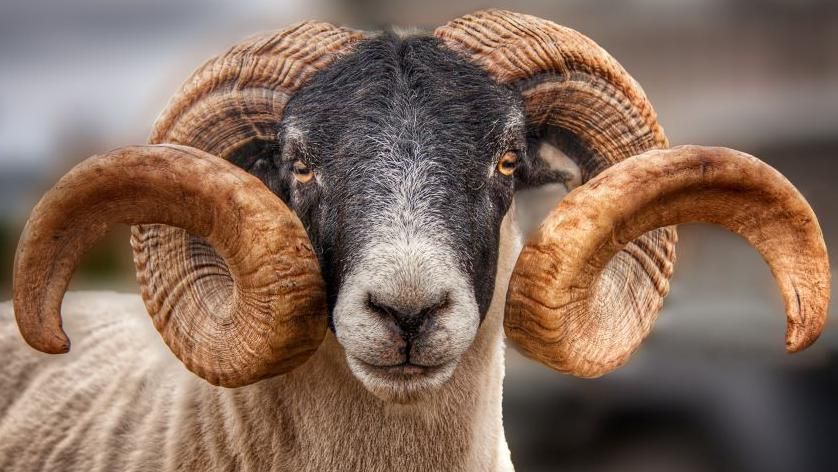Devastating livestock diseases tracked by new hub

- Published
Tracking the spread of diseases potentially fatal to sheep and cattle forms part of the work being done at a new centre in Inverness.
The £12.5m Rural and Veterinary Innovation Centre (Ravic) has brought together scientists and businesses on one site in an effort to improve monitoring and research.
Ravic's bosses said how data was used to track Covid strains during the pandemic had helped to guide some of the work.
Diseases of interest to the hub include bovine viral diarrhoea in cattle and bluetongue - a viral disease that can be spread to livestock by certain species of biting midges.
Ravic has been up and running at the Inverness Campus since last year, but was officially opened in a ceremony attended by the Princess Royal on Tuesday.
The centre has been developed by Scotland's Rural College (SRUC) with funding from the European Regional Development Fund and the Scottish Funding Council.
The approach of bringing together academics, research groups and small businesses was modelled on similar centres in Scandinavia and North America.
Ravic has a suite of laboratories, meeting rooms and a lecture theatre.
Princess Anne officially opened the new centre
The centre is on the Inverness Campus
Current areas of research include diseases affecting humans and animals, viruses' resistance to drugs, food security and the effects of climate change on diseases.
Director Prof George Gunn said: "Data became hugely important to tracking Covid and what strain you were looking at and what exactly was going on.
"The same is true for our animal diseases, things like bovine viral diarrhoea.
"In the future we will have things like bluetongue, which is going to be a big threat going into the summer."
Bluetongue can affect sheep and cattle and there were recent cases in the south of England. It can be fatal to animals.
Ravic director Prof George Gunn said the Covid pandemic had shown how important data was to tracking viruses
Another of Ravic's scientists, Dr Scott Lawton, said: "This building is really quite unique because it brings together local veterinary surveillance, business and hard basic science.
"We have an inter-disciplinary approach to addressing real world problems surrounding the spread of disease."
- Published22 May 2023